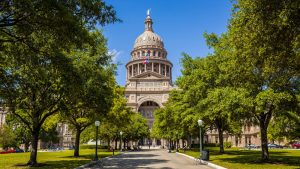 The Texas legislative session has come to a close, and the much expected law banning cities from implementing sick leave ordinances and similar employment laws failed to make it to the Governor’s desk. The reason for the collapse of the proposed bill (which had broad support from Governor Greg Abbott and business groups) was perceived over-reaching in language that would have not only outlawed cities from passing sick leave laws, but any employment laws — including prohibitions on sexual orientation and trans-gender discrimination. Since Texas has no such protections in its state anti-discrimination law, the only protections on the books are local ordinances; and lobbying groups came out in force to protect these ordinances. This controversy sank the chances of the bill passing; and since the legislature meets only every two years, this issue is likely going to be left to the state courts to decide.
The Texas legislative session has come to a close, and the much expected law banning cities from implementing sick leave ordinances and similar employment laws failed to make it to the Governor’s desk. The reason for the collapse of the proposed bill (which had broad support from Governor Greg Abbott and business groups) was perceived over-reaching in language that would have not only outlawed cities from passing sick leave laws, but any employment laws — including prohibitions on sexual orientation and trans-gender discrimination. Since Texas has no such protections in its state anti-discrimination law, the only protections on the books are local ordinances; and lobbying groups came out in force to protect these ordinances. This controversy sank the chances of the bill passing; and since the legislature meets only every two years, this issue is likely going to be left to the state courts to decide.
As it currently stands, the Austin sick pay ordinance has been enjoined by a state appellate court from taking effect. That case appears to be headed to the Texas Supreme Court, which will decide whether the law is constitutional. San Antonio has also passed a sick pay ordinance, scheduled to take effect August 1, 2019 for businesses with more than 15 employees. The San Antonio City Council is currently considering whether to postpone the effective date of its law to allow the Austin ordinance to be reviewed by the Supreme Court. Not to be outdone, Dallas passed its own sick pay ordinance in April 2019 to take effect August 1, 2019 for employers with more than five (5) employees. Notably, the law restricts the city from issuing penalties until April 2020, and there is a strong likelihood a lawsuit will be filed challenging its implementation, just like the one filed in Austin.
In sum, the Texas Legislature failed to bring some much needed clarity to this emerging trend of cities in Texas passing employment laws. The issue will be left for the courts to decide, and it is uncertain how long that will take or where the cases will ultimately end up for Texas employers.


Leave a Reply